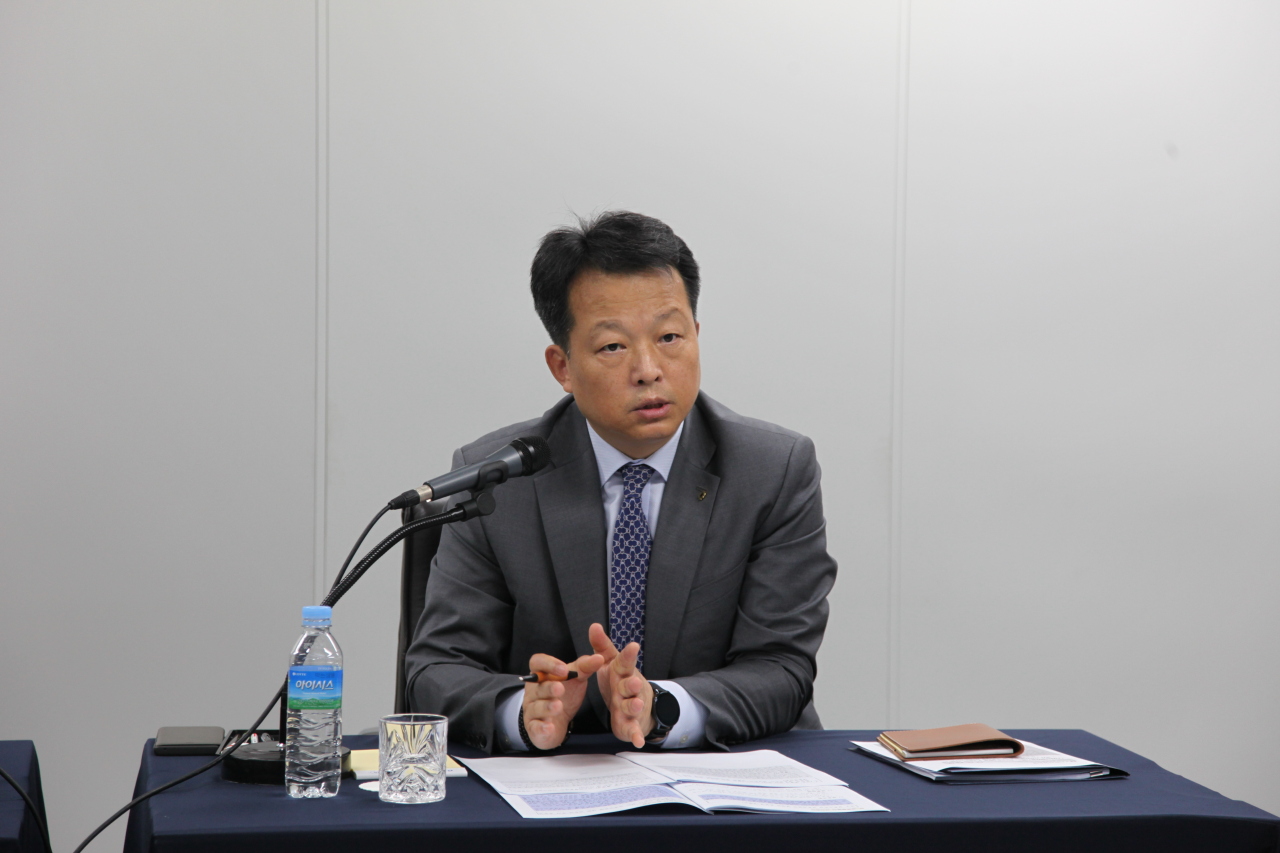 |
(Yonhap) |
Creditors of Asiana Airlines announced Friday that they would pull the plug on a stalled deal to sell the cash-strapped airline to property developer HDC Hyundai Development Co. after 10 months of negotiations.
They also decided to inject an additional 2.4 trillion won ($2.02 billion) in industrial stabilization funds to normalize operations at the air carrier for another disposal attempt.
“Today, Kumho Industrial Co. has notified HDC Hyundai Development Co. that the merger and acquisition of Asiana Airlines has been canceled,” said Korea Development Bank Vice President Choi Dae-hyun in an online press briefing, expressing regrets over the deal rupture.
KDB and the Export-Import Bank of Korea, both state-run lenders, are the main creditors of the country’s second-largest air carrier. The two policy finance organizations have so far extended a combined 3.3 trillion won in recent to help the company stay afloat.
With HDC out of the picture, creditors will provide another 2.4 trillion won to the airline and carry out a debt-for-equity swap with perpetual bonds to take over the management.
“As we were stuck in a situation where HDC’s obligation to close the deal kept being delayed, this was an inevitable choice to maintain the value of Asiana Airlines as a going concern,” Asiana Airlines CEO Han Chang-soo wrote in an email to employees, following KDB’s announcement.
HDC had risen as a plausible buyer as it was selected a preferred bidder in November last year, but negotiations have stalled over the past 10 months due to disagreement over acquisition terms.
This is the second aborted deal in Korea’s coronavirus-hit airline industry this year, following low cost carrier Jeju Air’s cancellation of its former plan to acquire smaller rival Eastar Jet in July.
The remaining issue is the anticipated legal battle over the down payment -- 10 percent of the 2.5 trillion won takeover price -- which HDC and consortium partner Mirae Asset Daewoo had floated in advance in December.
While the airline put up a united front on Friday saying that it will adapt to the post COVID-19 era, the failed deal that went on for months is likely to deal a severe blow to Kumho Group’s efforts to restructure itself. The corporation has sought to sell the airline to solve its liquidity problems.
Since its acquisition of Daewoo E&C in 2006, which was soon followed by the global financial crisis, the airline has been Kumho’s main source of income over the years, before the worsening pandemic forced the cash-strapped conglomerate to put it up for sale.
As for HDC, it is expected to return its focus to the main business of construction and real estate, putting hold its Chairman Chung Mong-gyu‘s ambition to transform into a mobility business that he had declared upon announcing the bid to purchase Asiana last year.
The market is most likely to view HDC’s decision to withdraw from the deal -- at the risk of damaging Chung‘s credibility -- as positive for having ensured stability, market watchers said.
By Bae Hyun-jung & Yim Hyun-su (
tellme@heraldcorp.com)(hyunsu@heraldcorp.com">
tellme@heraldcorp.com)(hyunsu@heraldcorp.com)








